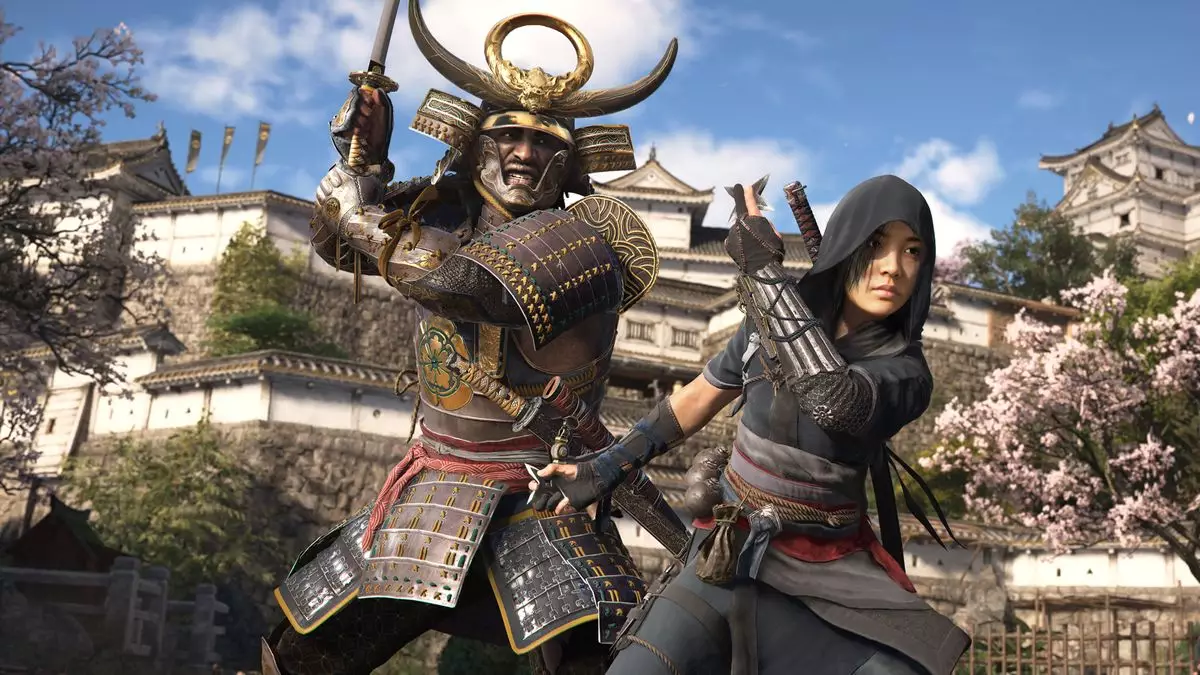Assassin’s Creed has long captured the imagination of gamers with its unique fusion of historical events and modern-day conspiracies. However, the narrative landscape of the franchise has faced considerable shifts in focus, leading to a dilution of its original appeal. The impending release of Assassin’s Creed Shadows marks a crucial juncture for Ubisoft, aiming to recalibrate the storytelling dynamics that define this iconic series.
From the franchise’s inception, players have been drawn into a world where history and the present intertwine, crafting intricate tales that challenge perceptions of reality. Yet, as the series progressed, the depth of its narrative suffered, particularly with the decline of the modern timeline following the pivotal events of 2012’s Assassin’s Creed 3. The demise of protagonist Desmond heralded not only a dramatic shift but also a pivotal moment for the franchise. According to series executive producer Marc-Alexis Côté, this marked a period of stagnation for the modern storyline, which subsequently struggled to find relevance and purpose.
Where once the interplay between ancient conflicts and contemporary power struggles formed a robust narrative backbone, the subsequent plots increasingly revolved around collectible artifacts. This pivot rendered the overarching conflict mundane, reducing the depth of character motivation and historical resonance. The original infusion of historical exploration—a defining element of the Assassin’s Creed identity—became overshadowed by repetitive leads in quests for “magical relics.” This approach inadvertently alienated a segment of players, leaving many to feel that the modern component of storytelling had devolved into little more than a distraction.
Côté’s comments illuminate a broader issue facing long-standing franchises: the necessity to innovate while staying true to foundational themes. The complexity and expansive lore built over 15 years created a daunting barrier for newcomers. As the narrative intricacies multiplied, many felt lost, unable to penetrate the rich tapestry of Assassin’s Creed’s world without extensive background knowledge. The resulting cognitive load not only diminished player engagement but also shackled the potential for fresh storytelling.
As Ubisoft embarks on what Côté refers to as the “third period” of Assassin’s Creed, the ambition is clear: to rejuvenate historical narratives while ensuring that modern-day storylines serve to augment, rather than overshadow, these historical explorations. This shift towards re-establishing history at the forefront promises to restore a sense of wonder and curiosity that originally captivated audiences. Players will navigate through vibrant historical contexts, experiencing the interconnectedness of their own lives in relation to pivotal moments that sparked change over the centuries.
Central to this renewed vision is the exploration of critical themes such as memory, identity, and autonomy. Côté expressed enthusiasm for how the past intricately shapes individual and collective identities and how the manipulation of historical narratives can influence the contemporary world. These deeper threads connect to timely discussions surrounding freedom, control, and the pursuit of knowledge, offering players not only an immersive experience but also a reflective lens through which to examine current societal issues.
By intertwining compelling historical narratives with rich thematic elements, Ubisoft aims to recapture the essence of what made Assassin’s Creed an iconic staple in gaming culture. The hope is that players will experience an invigorating sense of historical vertigo, prompting them to reflect on how their own lives are informed by a continuum of past events.
As the gaming community eagerly anticipates the release of Assassin’s Creed Shadows, there rests a shared expectation of innovation blended with nostalgia. The roadmap set forth by Ubisoft promises not only to honor the legacy of the series but also to embark on a bold transformation that reestablishes the balance between history and modernity. By reinvigorating narrative depth and focusing on the interplay between personal and collective histories, Ubisoft stands poised to revive the essential elements that originally made Assassin’s Creed a beloved franchise. It remains to be seen how successfully these ambitions will materialize, but the promise of this transformation offers a compelling glimpse into a potential future—one where the past is not merely a backdrop but a living, breathing force that shapes the present and the future.

